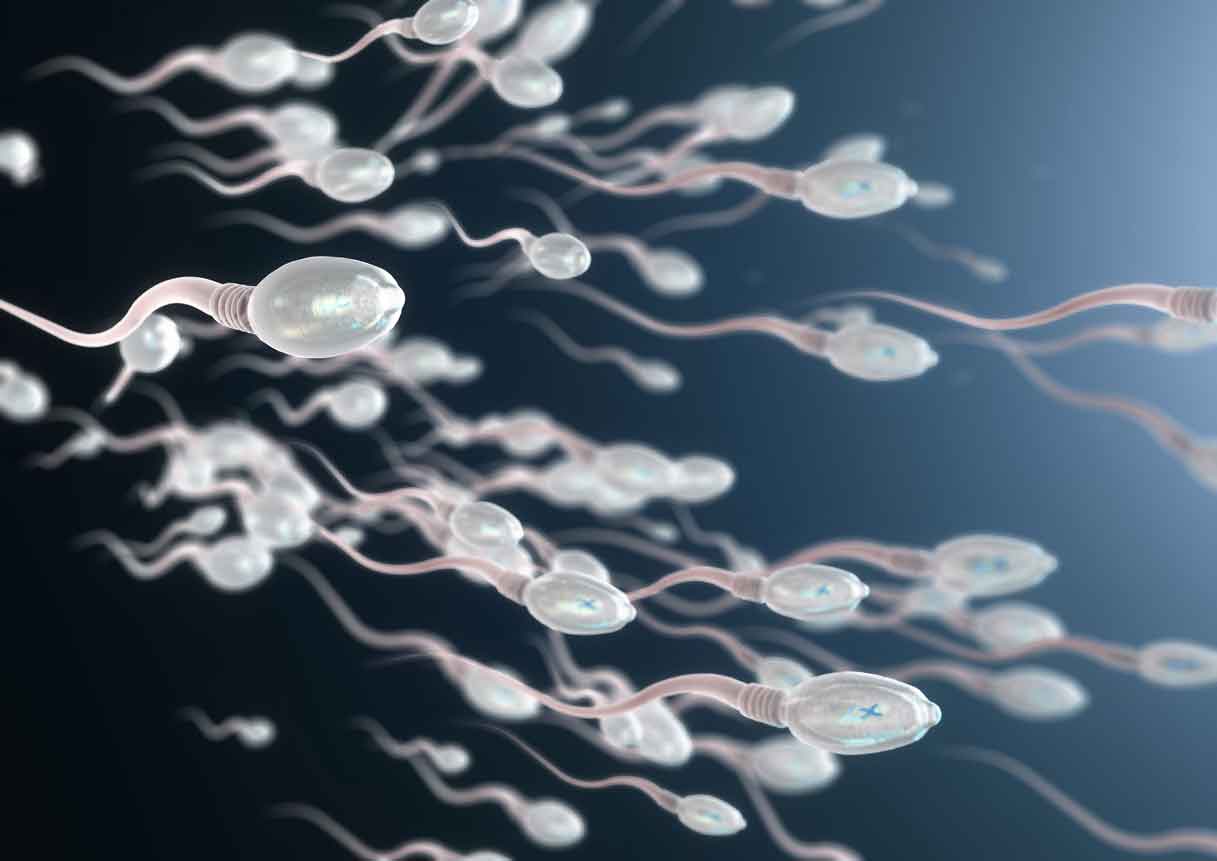Thursday, 01 April 2021
New research, led by scientists at the University of Nottingham, suggests that the environment in which men live may affect their reproductive health.
The research, published in Scientific Reports, looked at the effects of geographical location on polluting chemicals found in dog testes, some of which are known to affect reproductive health. The unique research focused on dogs because, as a popular pet, they share the same environment as people and are effectively exposed to the same household chemicals as their owners.
The team also looked for signs of abnormalities in the testes. The findings showed that both the chemicals present and the extent of abnormalities in the testes were different depending on where the dog’s had been living.
 Sperm
Sperm
The researchers analysed the testes of dogs, which had been removed for routine clinical reasons, to see what polluting chemicals were present in the tissue. Samples were taken from across the UK, in the East and West Midlands, and the South East, as well as from Denmark and Finland.
Dr Rebecca Sumner, from the School of Veterinary Medicine and Science at the University, and lead author of the study, said: “For the first time, we have shown that the profile of chemical pollutants found in dog testes depends on where they are from. We have also shown that the same cohorts of dog testes also show geographic differences in testicular pathology and evidence of an imbalance in cells that are important for sperm production.”
 Dr Rebecca Sumner
Dr Rebecca Sumner
Dr Richard Lea, lead of the team, said: “Although this study suggests that there are fewer pathologies in dog testes from Finland compared to other locations, relating this to the chemicals detected is difficult, particularly as many other pollutants may also be present.
“We believe, that this study is of pivotal importance since our strategy to use the dog as a sentinel species for the human has allowed us to focus directly on the testis, where detected chemicals are likely to influence male reproductive function.”
Professor Gary England, Dean of School of Veterinary Medicine & Science, said “This work is significant since collectively, these findings indicate that environmental exposures are determined by location and this may underpin regional differences in male reproductive health.”
The full study can be found here.
Story credits
More information is available from Richard Lea or Rebecca Sumner from the School of Veterinary Medicine and Sciences at the University of Nottingham at richard.lea@nottingham.ac.uk; rebecca.sumner@nottingham.ac.uk
Notes to editors:
About the University of Nottingham
Ranked 97 in the world and 17th in the UK by the QS World University Rankings, the University of Nottingham is a founding member of Russell Group of research-intensive universities. Studying at the University of Nottingham is a life-changing experience, and we pride ourselves on unlocking the potential of our students. We have a pioneering spirit, expressed in the vision of our founder Sir Jesse Boot, which has seen us lead the way in establishing campuses in China and Malaysia - part of a globally connected network of education, research and industrial engagement.
Nottingham was crowned Sports University of the Year by The Times and Sunday Times Good University Guide 2024 – the third time it has been given the honour since 2018 – and by the Daily Mail University Guide 2024.
The university is among the best universities in the UK for the strength of our research, positioned seventh for research power in the UK according to REF 2021. The birthplace of discoveries such as MRI and ibuprofen, our innovations transform lives and tackle global problems such as sustainable food supplies, ending modern slavery, developing greener transport, and reducing reliance on fossil fuels.
The university is a major employer and industry partner - locally and globally - and our graduates are the third most targeted by the UK's top employers, according to The Graduate Market in 2024 report by High Fliers Research.
We lead the Universities for Nottingham initiative, in partnership with Nottingham Trent University, a pioneering collaboration between the city’s two world-class institutions to improve levels of prosperity, opportunity, sustainability, health and wellbeing for residents in the city and region we are proud to call home.
More news…